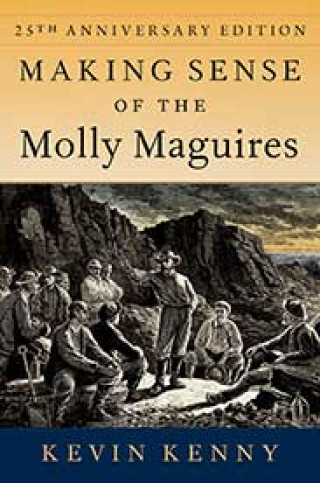1. The Molly Maguires left almost no evidence of their own
Other than two letters, one of them a fragment, no direct evidence survives from the Molly Maguires themselves. Almost everything that is known about them takes the form of hostile, often exaggerated, descriptions by their enemies. How, then, can a historian hope to write their history?
First, I read everything that was written about the Molly Maguires in the nineteenth century and since. Then, I used census records and government reports to determine the class structure of the anthracite region, in particular the different kinds of work performed by different ethnic groups, with British immigrants dominating the skilled positions in the mines and Irish immigrants providing most of the unskilled labor. In these ways, I began to make sense of the Molly Maguires—not only how they were portrayed by others, but also who they were, and why they acted as they did. The pattern of violence in Pennsylvania, moreover, strikingly resembled a pattern of violence I had already encountered in my study of Irish rural history.
2. The Molly Maguires were a transatlantic outgrowth of a distinctive Irish rural tradition
The Molly Maguires first emerged in Ireland in the 1840s and 1850s, the last in a long line of rural secret societies that included the “Whiteboys,” the “Oakboys,” the “Ribbonmen,” and the “Lady Clares.” The men who joined these organizations wore female clothing as a form of disguise and pledged their allegiance to a mythical woman who symbolized their struggle against landlords who raised rents, evicted tenants, or enclosed common land.
3. The Molly Maguires embodied an archaic form of labor protest in industrial America
In an industrial capitalist economy, trade union leaders negotiate with employers to raise wages and improve working conditions, and they can bring production to a standstill by calling a strike. The Molly Maguires took a more direct approach. If a mine operator treated Irish workers unfairly by paying them less for the same work, or by reserving the best jobs for British workers, they delivered a verbal warning. If he did not listen, they nailed a sheet of paper to his door with a coffin sketched on it and the words “this will be yours.” This coffin notice might be followed by a beating. The ultimate sanction was assassination.
